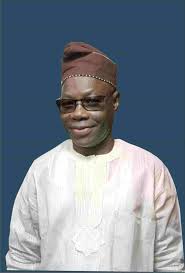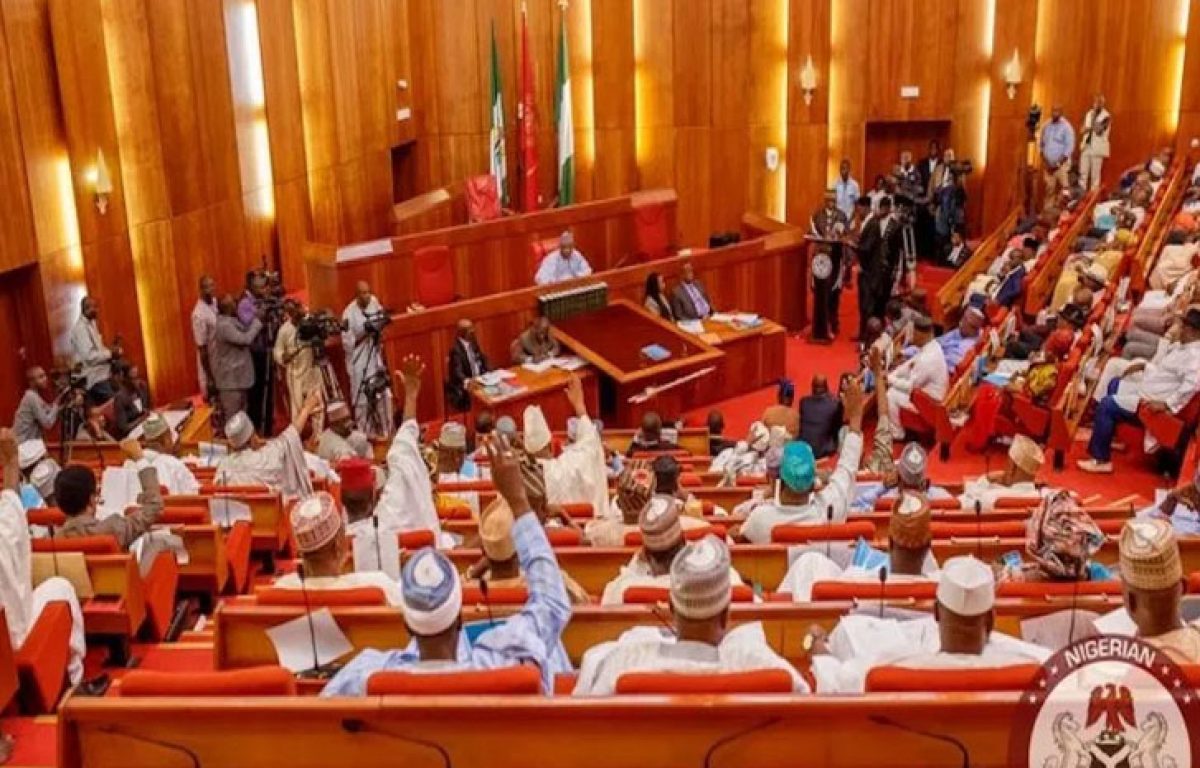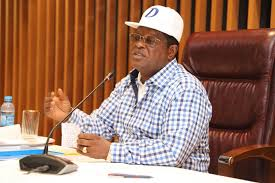Business
Rollout of new electricity meters from May 1 not realistic, says manufacturer

Momas Electricity Meter Manufacturing Company Ltd. says Nigerian Electricity Regulatory Commission (NERC) directives to begin the roll out of new meters by May 1 is not feasible and realistic.
Kola Balogun, Chairman of the company, told Nationaltrail in Lagos on Sunday that rolling out meters by May 1 as directed by the NERC was unachievable, considering other challenges that required attention.
Nationaltrail reports that on April 5, NERC issued permits to Meter Asset Providers (MAPs) to roll-out new meters not later than May 1, 2019.
According to Balogun, the directive cannot work; in the first instance, consumers need to be educated about what is expected of them to have access to MAP licensee.
“Secondly, consumers have to be informed on the methods of acquiring meters, whether by payment or by investment.
“Lastly, every manufacturer ( licensee) that wants to roll out meters needs a grace of three months to enable them have the meters available in their warehouses.
“The modality to start rolling out meters has to be put in place viz a viz all the various documentations that are required and the infrastructure that will make deployment a smooth running, ‘’ he said.
“If we are licensed this month (April) three months are enough for us to prepare, that is April May and June, while in July we start implementation.
“Except for few numbers of us who have some stock at hand that can roll out but the modality to roll out is also a question.
“ Apart from NERC giving licences, we still need processes to be put in place before meters will get to consumers because we need to train the meter installers, they need to be adequately trained on installation in consumers’ premises.
“Consumers also need to be educated on payments, there will also be an “EXCO account’’ in the process. These are challenges that require a long period.
“While that one is going on, anybody who wants to place an order from manufactures will also be signing a contract agreement for the meters.
“Those who want to import will also be making orders for importations,’’ Balogun explained.
The indigenous meter manufacturer said he could not fathom how the NERC came up with such directive, because of the time frame required in the processes.
“NERC only engaged few MAPs last week and then we have Mojec and others, including two Discos and we still have about 8-9 Discos which are on the process of licensing.
“However, the process needs to be expantiated so that the media will have a clear understanding of the issues and the directive.
He said that according to NERC perspective, meter prices have been benchmarked on what was accepted for consumers to pay.
He said that consumer would be paying between N36,000 to N37,000 on single phase meters and between N63,000 and N67,000 on three phase meters, saying that was the position of the regulator.
“We have the capacity to roll out massively, when the projects kick start and we also pray for that.
“We have sufficient financial support from financial institutions like the CBN and other financial institutions that will support the schemes to have sufficient fund to rollout meters massively.
On April 3, 2018, the NERC introduced the MAP regulation to new investors in the power sector to fast-track the roll-out of meters through the engagement of third-party investors.
The Commission issued permits to Meter Asset Providers (MAPs) on April 5 in accordance with section 4(3) of the MAP Regulations 2018, to MAPs that were successful in the procurement conducted by Abuja and Jos Discos.
Section 4(3) of the MAP Regulation 2018 require all electricity distribution licensees to engage MAPs that will assist as investors, in closing the metering gap and thus eliminating estimated billing in the Nigerian Electricity Supply Industry (NESI).
Business
Senate Committee Commends Tinubu on Launch of National Halal Economy Strategy to Tap $7.7trn Global Market*

The Senate Committee on Finance has commended President Bola Ahmed Tinubu for launching Nigeria’s National Halal Economy Strategy, describing it as a bold and strategic move to position the country within the lucrative global halal market, estimated at $7.7 trillion.
In a statement signed by its Chairman, the committee praised the initiative as timely and aligned with international best practices. Several countries—including the United Kingdom, Canada, Australia, Malaysia, Indonesia, Saudi Arabia, the United Arab Emirates, Turkey, Brazil, Thailand, and Singapore—have successfully used halal frameworks to boost manufacturing, agricultural exports, financial markets, and foreign investment.
The committee highlighted Nigeria’s strong advantages for success in this space, including its vast agricultural resources, large domestic market, youthful population, growing manufacturing sector, and expanding services industry.
It noted that the strategy fits seamlessly into the Tinubu administration’s broader economic reforms, such as boosting non-oil revenue, diversifying exports, creating jobs, supporting small and medium enterprises (SMEs), and increasing foreign exchange earnings.
President Tinubu, represented by Vice President Kashim Shettima, officially unveiled the strategy on Thursday, February 6, 2026, at the Presidential Villa in Abuja.
The framework, developed in collaboration with Saudi Arabia’s Halal Products Development Company (HPDC) following a bilateral agreement signed in February 2025 at the Makkah Halal Forum, aims to enhance quality standards, certification processes, and competitiveness across sectors like food, pharmaceuticals, cosmetics, tourism, and ethical finance.
The committee described the strategy as inclusive, market-driven, and globally oriented, while fully respecting Nigeria’s diverse and pluralistic society.
It is projected to contribute significantly to the economy, with estimates suggesting it could add around $1.5 billion to Nigeria’s GDP by 2027 and unlock billions more in domestic value over the coming decade through expanded exports and investment.
The Senate Committee on Finance pledged its full legislative support, oversight, and cooperation to ensure smooth implementation, regulatory clarity, and long-term fiscal sustainability in the national interest.
“This decisive step reinforces Nigeria’s readiness to adopt proven international models, unlock new economic frontiers, and establish itself as a competitive player in the evolving global economy,” the statement concluded.
Business
Ex-Naval Chief Named in ₦100m Property Transaction Dispute
A property transaction dispute has emerged involving Zoe New Dawn Nigeria Limited and a former Chief of Naval Staff, following claims by the company’s chairman, Engr. Dr. Stephen Achema Akpa, that a ₦100 million payment made for land was not followed by a transfer of ownership.

According to Akpa, the payment was made in connection with a land transaction reportedly facilitated by the former naval chief. He alleged that despite documented payments, the land in question was neither transferred to the company nor was the money refunded.
Akpa said Zoe New Dawn Nigeria Limited possesses transaction records and related documents which, he claims, support its position in the dispute. He added that the company has initiated steps to seek redress through appropriate legal channels.
The matter has drawn attention due to the profile of the parties involved, particularly against the backdrop of recurring disputes linked to land ownership and property transactions in Nigeria’s real estate sector.
Industry observers note that unresolved land transactions remain a common source of litigation, often arising from disagreements over title documentation, intermediaries, and contractual obligations.
Zoe New Dawn Nigeria Limited stated that it intends to pursue the matter through lawful means to determine liability and recover any funds deemed outstanding.
As of press time, no official response had been issued by the former Chief of Naval Staff regarding the allegations. The dispute has not yet been confirmed as the subject of any court proceedings.
Business
Umahi Inspects Lekki Corridor’s 7th Axial Road Project, Expresses Confidence in CHEC

Minister of Works Senator Dave Umahi over the weekend inspected the progress of the 7th Axial Road project in the Lekki Corridor of Lagos.
The project, located behind the Dangote Refinery, is a crucial cargo handling route for the Lekki Deepwater Port and connects the Lekki Corridor with the Sagamu route.
The Minister expressed confidence in China Harbour Engineering Company Limited (CHEC), the project’s contractor, citing its successful delivery of the Lekki Deepwater Port and high-quality progress on the Makurdi-Enugu road reconstruction and expansion project. Umahi instructed that the roadbed filling work for Project LOT1 be completed by the end of April and directed the project team to accelerate resource input and tangible works to meet the deadline.
The 7th Axial Highway is expected to synergize with key infrastructure projects like the Coastal Road, Dangote Road, and Lekki Port, creating a comprehensive transportation hub model and boosting Nigeria’s port economy and industrial corridor. Umahi emphasized the need for environmental protection agencies to ensure efficient construction and steady progress while maintaining ecological safety.
A representative of CHEC who spoke during the inspection stated that the company would maintain a high level of resource input, implement the Minister’s directives, and coordinate safety, quality, and environmental protection to ensure the project’s timely and high-quality completion in other to unluck its port relief and regional economic benefits.
-

 Uncategorized5 years ago
Uncategorized5 years agoFG, states urged to harness flooding for ranching, others with technology – Agbaje
-

 Headlines10 years ago
Headlines10 years agoBreaking: EFCC seals Borno House of Assembly, as Hon members take to their heels
-

 News12 years ago
News12 years agoNigeria Security Operatives Stage Manhunt For Homosexual Perpetrator
-

 News9 years ago
News9 years agoHow 21-year-old Girl fled community over accusation of lesbianism
-

 News10 years ago
News10 years agoYobe Gov Moves Against Deputy
-

 Opinion7 years ago
Opinion7 years ago7 signs she has friend zoned you
-
Technology4 years ago
Online job placement company headhunts women
-

 Headlines10 years ago
Headlines10 years agoBorno Dep Gov Abducts Another Church Leader





